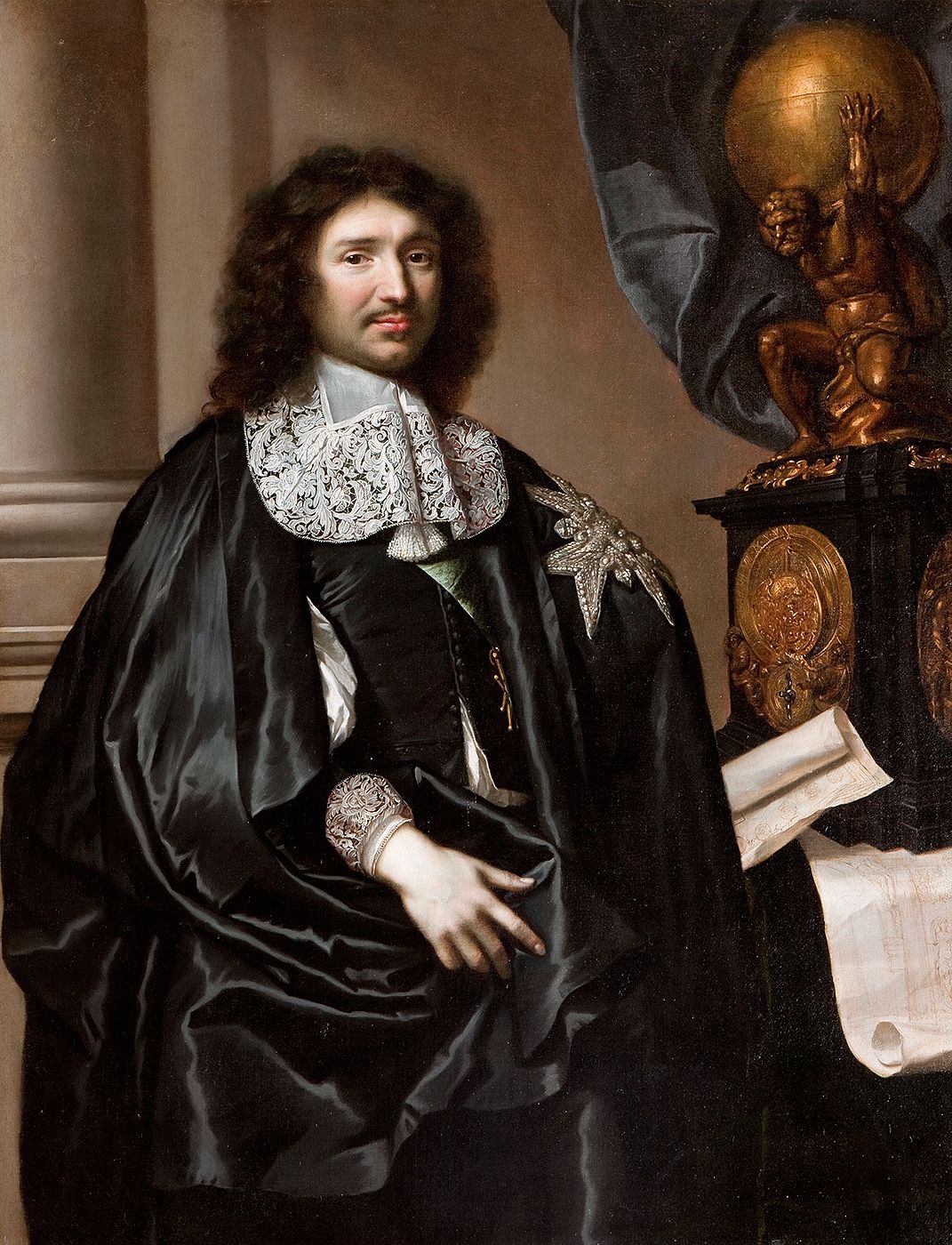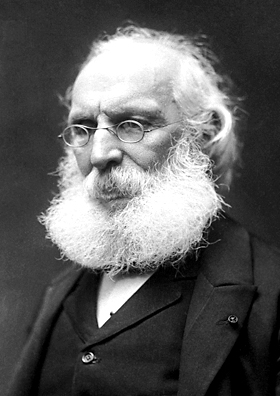|
Jean-Pierre Clément
Jean-Pierre Clément (2 June 1809 – 8 November 1870; known as Pierre Clément) was a French political economist and historian, born at Draguignan. He was in the Ministry of Finance and a member of the Institut de France, Institute and wrote, with the aid of original documents, works on French financial administration, particularly in the epoch of Jean-Baptiste Colbert, Colbert, including: *''Histoire de la vie et de l'administration de Colbert'' (1846) *''Histoire du systéme protecteur en France depuis Colbert jusqu'à la révolution de 1848'' (1854) *''Etudes financières et d'economie sociale'' (1859) *''Lettres, instructions, et Mémoires de Colbert'' (seven volumes, 1861–1882) Clément's prefaces to the last work were collected and edited by his widow under the title ''Histoire de Colbert et de son administration'' (1874; third edition, 1892) Clément was an early member of the Société d'économie politique organized by Pellegrino Rossi. References External ... [...More Info...] [...Related Items...] OR: [Wikipedia] [Google] [Baidu] |
Draguignan
Draguignan (; ) is a commune in the Var department in the administrative region of Provence-Alpes-Côte d'Azur (formerly Provence), southeastern France. It is a sub-prefecture of the department and self-proclaimed "capital of Artillery" and "''Porte du Verdon''". The city is from Saint-Tropez, and from Nice. Name and motto According to legend, the name of the city is derived from the Latin name "Draco/Draconem" (''dragon''): a bishop, called Saint Hermentaire, killed a dragon and saved people. The Latin motto of Draguignan is ''Alios nutrio, meos devoro'' (I nourish others, I devour my own). Geography The elevation is 200 m. The highest hill near Draguignan is Malmont (551 m). The main river near Draguignan is the Nartuby. The city is set in a valley NW-SE, about wide. Climate Draguignan's climate is the same as the normal conditions of the Mediterranean climate. The nights of frost are rare and the negative temperatures occur only a few days ... [...More Info...] [...Related Items...] OR: [Wikipedia] [Google] [Baidu] |
Institut De France
The ; ) is a French learned society, grouping five , including the . It was established in 1795 at the direction of the National Convention. Located on the Quai de Conti in the 6th arrondissement of Paris, the institute manages approximately 1,000 foundations, as well as museums and châteaux open for visit. It also awards prizes and subsidies, which amounted to a total of over €27 million per year in 2017. Most of these prizes are awarded by the institute on the recommendation of the . History The building was originally constructed as the Collège des Quatre-Nations by Cardinal Mazarin, as a school for students from new provinces attached to France under Louis XIV. The inscription over the façade reads "JUL. MAZARIN S.R.E. CARD BASILICAM ET GYMNAS F.C.A M.D.C.LXI", attesting that Mazarin ordered its construction in 1661. The was established on 25 October 1795, by the National Convention. On 1 January 2018, Xavier Darcos took office as the 's chancellor. Elected ... [...More Info...] [...Related Items...] OR: [Wikipedia] [Google] [Baidu] |
Jean-Baptiste Colbert
Jean-Baptiste Colbert (; 29 August 1619 – 6 September 1683) was a French statesman who served as First Minister of State from 1661 until his death in 1683 under the rule of King Louis XIV. His lasting impact on the organization of the country's politics and markets, known as Colbertism, a doctrine often characterized as a variant of mercantilism, earned him the nickname ''le Grand Colbert'' (; "the Great Colbert"). A native of Reims, he was appointed Intendant of Finances on 4 May 1661. Colbert took over as Controller-General of Finances, a newly created position, in the aftermath of the arrest of Nicolas Fouquet for embezzlement, an event that led to the abolishment of the office of Superintendent of Finances. He worked to develop the domestic economy by raising tariffs and encouraging major public works projects, as well as to ensure that the French East India Company had access to foreign markets, so that they could always obtain coffee, cotton, dyewoods, fur, pepper, ... [...More Info...] [...Related Items...] OR: [Wikipedia] [Google] [Baidu] |
Société D'économie Politique
The Société d’Economie Politique () is a French learned society concerned with political economy. It was founded in 1842 to provide a forum for discussion of free trade, a subject of violent debate at the time, and has continued to organize discussions on economic and social issues to the present day. History The Société d’Économie Politique was founded on 1 February 1842 in Paris. It was created by the followers of Jean-Baptiste Say to provide an open forum for debate on economics at a time when there were violent arguments over free trade. The society was led informally by Pellegrino Rossi as president and Count Ferdinand-Charles-Philippe d' Esterno (1805–83) as secretary. The debates were very academic in nature, and the society dissolved after a few meetings. Members included Louis Leclerc, Jean-Pierre Clément, Hippolyte Dusard, Marie Roch Louis Reybaud, Louis Reybaud, Louis Wolowski, Léon Faucher, Horace Émile Say (1794–1860), son of Jean-Baptiste Say, Théodo ... [...More Info...] [...Related Items...] OR: [Wikipedia] [Google] [Baidu] |
Pellegrino Rossi
Pellegrino Luigi Odoardo Rossi (13 July 1787 – 15 November 1848) was an Italian economist, politician and jurist. He was an important figure of the July Monarchy in France, and the minister of justice in the government of the Papal States, under Pope Pius IX. Early life Rossi was born in Carrara, then under the Duchy of Massa and Carrara. Educated at the University of Pisa and the University of Bologna, he became a professor of law at the latter in 1812. In 1815, he supported Joachim Murat's Neapolitan anti- Austrian expedition. The text of the Rimini Proclamation, an early document calling for Italian unification, is widely attributed to Rossi. After Murat fell, he fled to France and then to Geneva. In Geneva, he taught a successful course of jurisprudence applied to Roman law. His success earned him the rare honour of naturalization as a citizen of Geneva. In 1820, he was elected as a deputy to the cantonal council, and was a member of the diet of 1832. Rossi was ent ... [...More Info...] [...Related Items...] OR: [Wikipedia] [Google] [Baidu] |
1809 Births
Events January–March * January 5 – The Treaty of the Dardanelles, between the United Kingdom of Great Britain and Ireland and the Ottoman Empire, is concluded. * January 10 – Peninsular War – French Marshal Jean Lannes begins the Second Siege of Zaragoza, Siege of Zaragoza. * January 14 – The Apodaca–Canning treaty is signed in London between Britain and Spain * January 16 – Peninsular War – Battle of Corunna in Galicia (Spain): The British (under General Sir John Moore (British Army officer), John Moore, who is killed) resist an attempt by the French (under Jean-de-Dieu Soult, Marshal Soult) to prevent them embarking. * February 3 – The Illinois Territory is created from the western part of the Indiana Territory. * February 11 – Robert Fulton patents the steamboat in the United States. * February 12 – Charles Darwin and Abraham Lincoln are born. * February 17 – Miami University (Ohio) is established ( ... [...More Info...] [...Related Items...] OR: [Wikipedia] [Google] [Baidu] |
1870 Deaths
Events January * January 1 ** The first edition of ''The Northern Echo'' newspaper is published in Priestgate, Darlington, England. ** Plans for the Brooklyn Bridge are completed. * January 3 – Construction of the Brooklyn Bridge begins in New York City. * January 6 – The ''Musikverein'', Vienna, is inaugurated in Austria-Hungary. * January 10 – John D. Rockefeller incorporates Standard Oil. * January 15 – A political cartoon for the first time symbolizes the United States Democratic Party with a donkey (''A Live Jackass Kicking a Dead Lion'' by Thomas Nast for ''Harper's Weekly''). * January 23 – Marias Massacre: U.S. soldiers attack a peaceful camp of Piegan Blackfeet Indians, led by chief Heavy Runner. * January 26 – Reconstruction Era (United States): Virginia rejoins the Union. This year it adopts a new Constitution, drawn up by John Curtiss Underwood, expanding suffrage to all male citizens over 21, including freedmen. * Januar ... [...More Info...] [...Related Items...] OR: [Wikipedia] [Google] [Baidu] |
French Male Non-fiction Writers
French may refer to: * Something of, from, or related to France ** French language, which originated in France ** French people, a nation and ethnic group ** French cuisine, cooking traditions and practices Arts and media * The French (band), a British rock band * "French" (episode), a live-action episode of ''The Super Mario Bros. Super Show!'' * ''Française'' (film), a 2008 film * French Stewart (born 1964), American actor Other uses * French (surname), a surname (including a list of people with the name) * French (tunic), a type of military jacket or tunic * French's, an American brand of mustard condiment * French (catheter scale), a unit of measurement * French Defence, a chess opening * French kiss, a type of kiss See also * France (other) * Franch, a surname * French Revolution (other) * French River (other), several rivers and other places * Frenching (other) Frenching may refer to: * Frenching (automobile), recessing or moul ... [...More Info...] [...Related Items...] OR: [Wikipedia] [Google] [Baidu] |
19th-century French Historians
The 19th century began on 1 January 1801 (represented by the Roman numerals MDCCCI), and ended on 31 December 1900 (MCM). It was the 9th century of the 2nd millennium. It was characterized by vast social upheaval. Slavery was Abolitionism, abolished in much of Europe and the Americas. The First Industrial Revolution, though it began in the late 18th century, expanded beyond its British homeland for the first time during the 19th century, particularly remaking the economies and societies of the Low Countries, France, the Rhineland, Northern Italy, and the Northeastern United States. A few decades later, the Second Industrial Revolution led to ever more massive urbanization and much higher levels of productivity, profit, and prosperity, a pattern that continued into the 20th century. The Catholic Church, in response to the growing influence and power of modernism, secularism and materialism, formed the First Vatican Council in the late 19th century to deal with such problems an ... [...More Info...] [...Related Items...] OR: [Wikipedia] [Google] [Baidu] |





